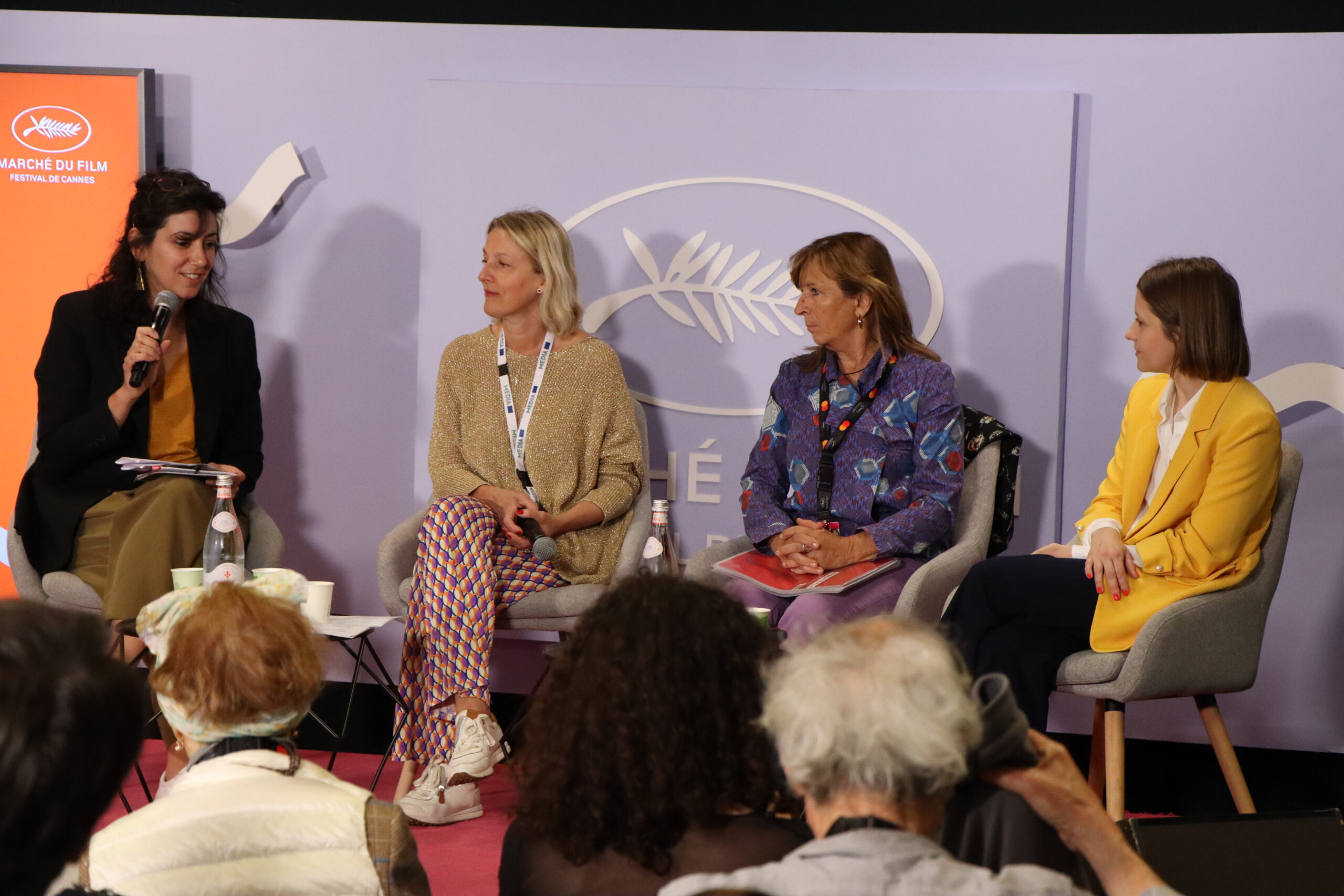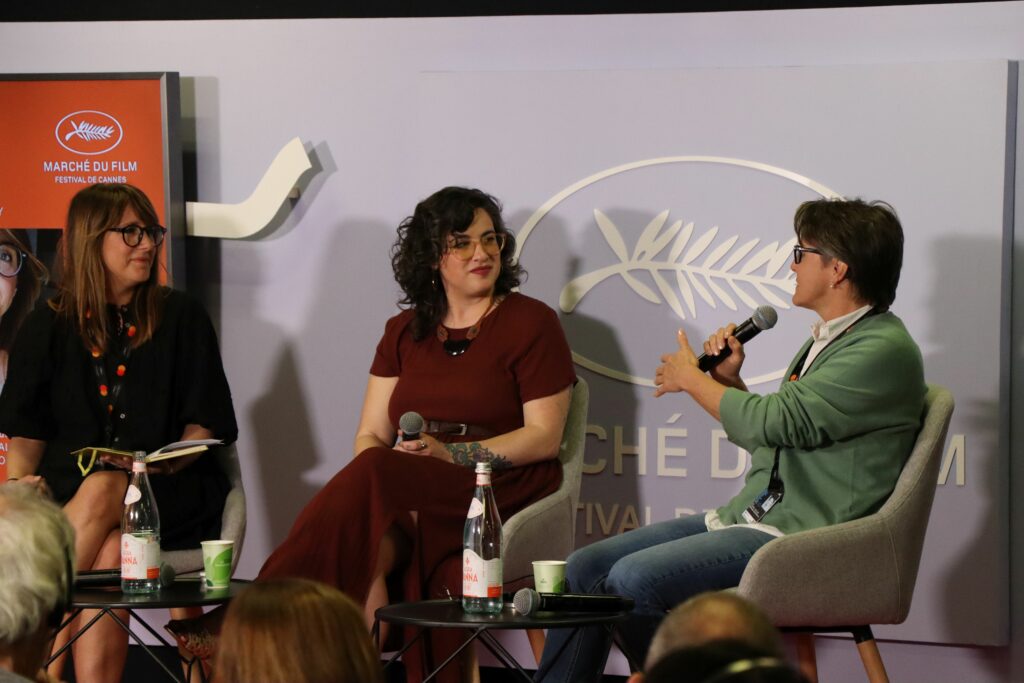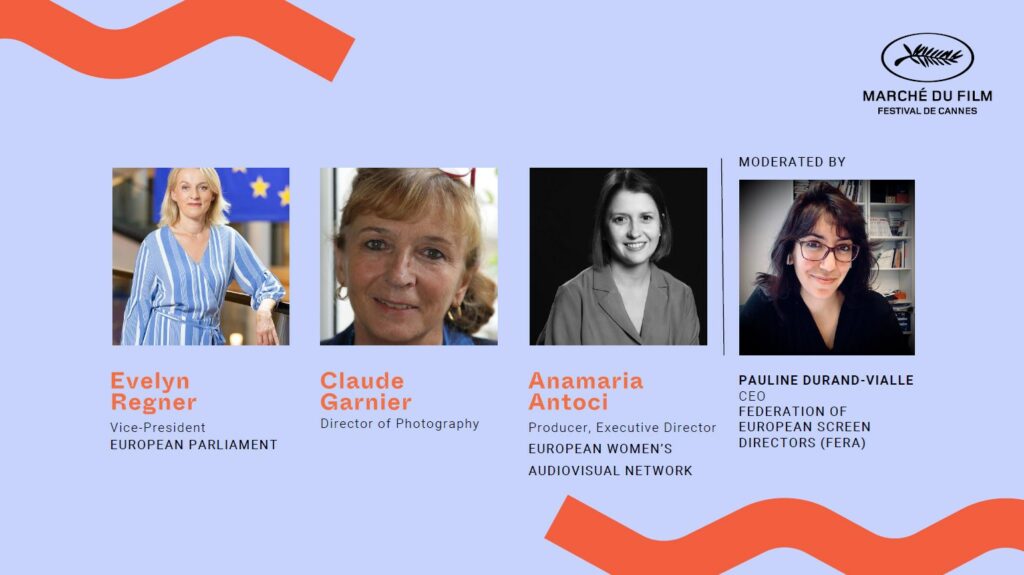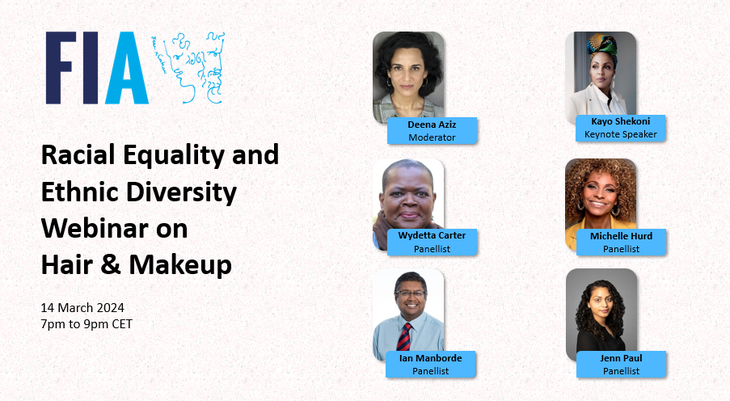Photos Helena Depambour – Marché du Film
Film workers’ unions elevated solutions to making the industry more accessible and safer to women at this year’s Cannes Film Festival; On 19 May they held ‘Two Conversations about Equality and Safety for Women in Film’.
The event was organised by the International Federation of Actors (FIA) and the Media, Entertainment & Arts sector of UNI Europa (UNI MEI), in collaboration with SAG-AFTRA and SFA, the US and French performers’ unions. Hosted at the ‘Marché du Film’ and live streamed for a broader audience, the panel discussion was composed of 2 consecutive segments and aimed at keeping the important topic on the industry agenda and at identifying priority actions for the coming months and years.
First panel: One step forward, two steps back?
Evelyn Regner, vice-president of the European Parliament, and longtime advocate for the respect of labour rights and of women’s rights, exchanged with two renowned professionals from the European audiovisual industry: Claude Garnier, Director of Photography and board member of the French union SPIAC CGT, and Anamaria Antoci, film producer and Executive Director of the European Women in Audiovisual Network (EWA). The conversation was moderated by Pauline Durant-Vialle, CEO of the Federation of European Screen Directors (FERA).
In this panel, the importance of monitoring qualitative data on women representation in the film industry was mentioned as indispensable to achieve any further progress, as well as the importance of incentives and binding measures, such as on the topic of safe working places or working conditions. Behind the camera, the representation of women in technical occupations is slowly increasing but there seems to be a ‘glass ceiling’ in the number of women in ‘head of department’ positions. In the 23 films of the official selection of the 2023 Cannes Film Festival, for example, 90 % of the 69 technical occupations were occupied by men. In 2022, the proportion was of 78% men in those occupations.
To achieve long term impact, producers should be more proactive in the way they include women in their projects, and funders should continue to look for better ways to promote gender balance in the films’ artistic teams and crews. Bonuses and other incentives are interesting tools but they seem to support projects that would have included women professionals anyway, rather than be sufficiently attractive to convince projects to change their original plans and include more women. Reducing the gender pay gap is also a topic that the film industry has to address urgently and seriously. The Pay transparency directive just adopted at EU level and the key principles it promotes should be used by the film industry to progress in this matter.
Second panel: Vulnerability and Dignity, Talking About Intimacy Coordination
The second conversation of the event discussed intimacy coordination. In the wake of #metoo sexual harassment, sexual and sexist violence, as well as workplace safety leapt into focus in the film sector as in our societies at large. Different support and health and safety provisions have been developed in response, with intimacy coordination becoming one of the most talked-about and promising tools. In this panel, Megan Gilron, Intimacy Professional, Chair of The National Society of Intimacy Professionals, explained what intimacy coordination is and how it can protect all film workers involved in scenes with nudity and simulated intimacy. Take up and perspectives for development in Europe were presented by Iris Zappe-Heller, Deputy Director of the Austrian Film Institute and Chair of the Gender and Inclusion Working Group of EFAD, the European network of national film agencies.
Intimacy Coordination professionals bring a very specific and crucial support to film crews and performers thus preventing sexual violence and inviting better practices. The development of IC practices are part of a systemic change promoting a culture of equality, consent and safe workspaces that benefit the audiovisual sector at large.
The newly relaunched Framework of Action on Gender Equality in the European Audiovisual sector reaffirms the commitment of broadcasters, producers and trade unions to driving progress, including on the prevention of bullying, harassment, and sexual harassment in audiovisual work places. The conversations is therefore not over but Cannes was an important milestone to continue to draw attention on the topic.
Watch the full event on the FIA Youtube Chanel here.








